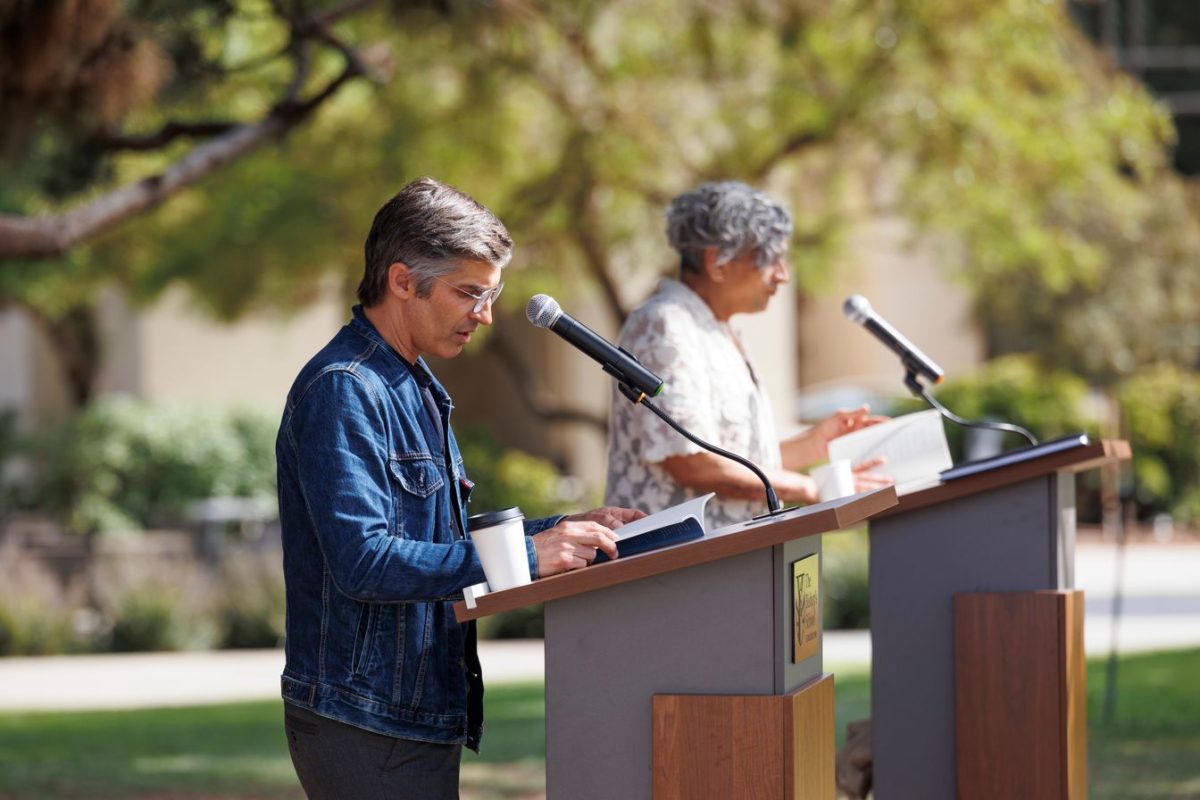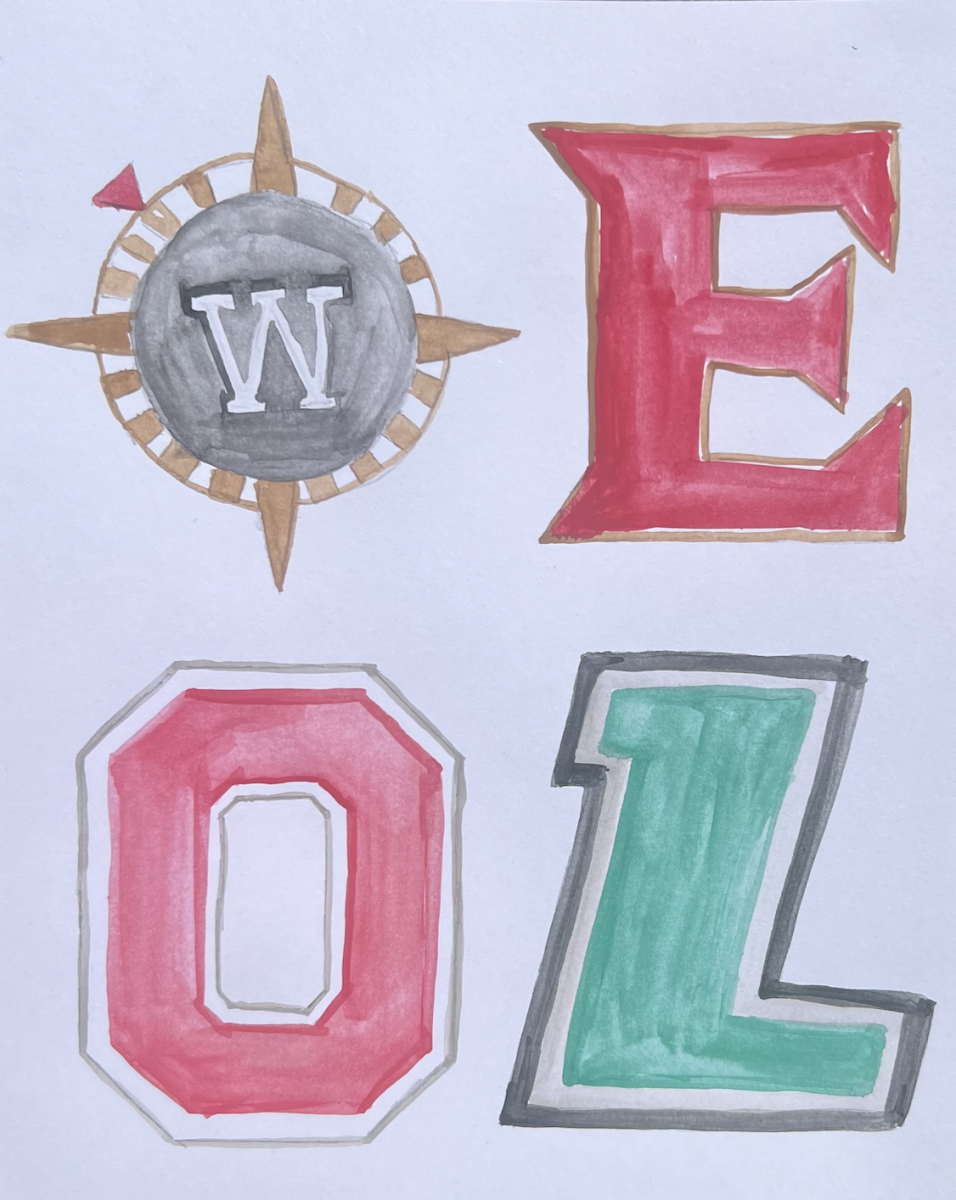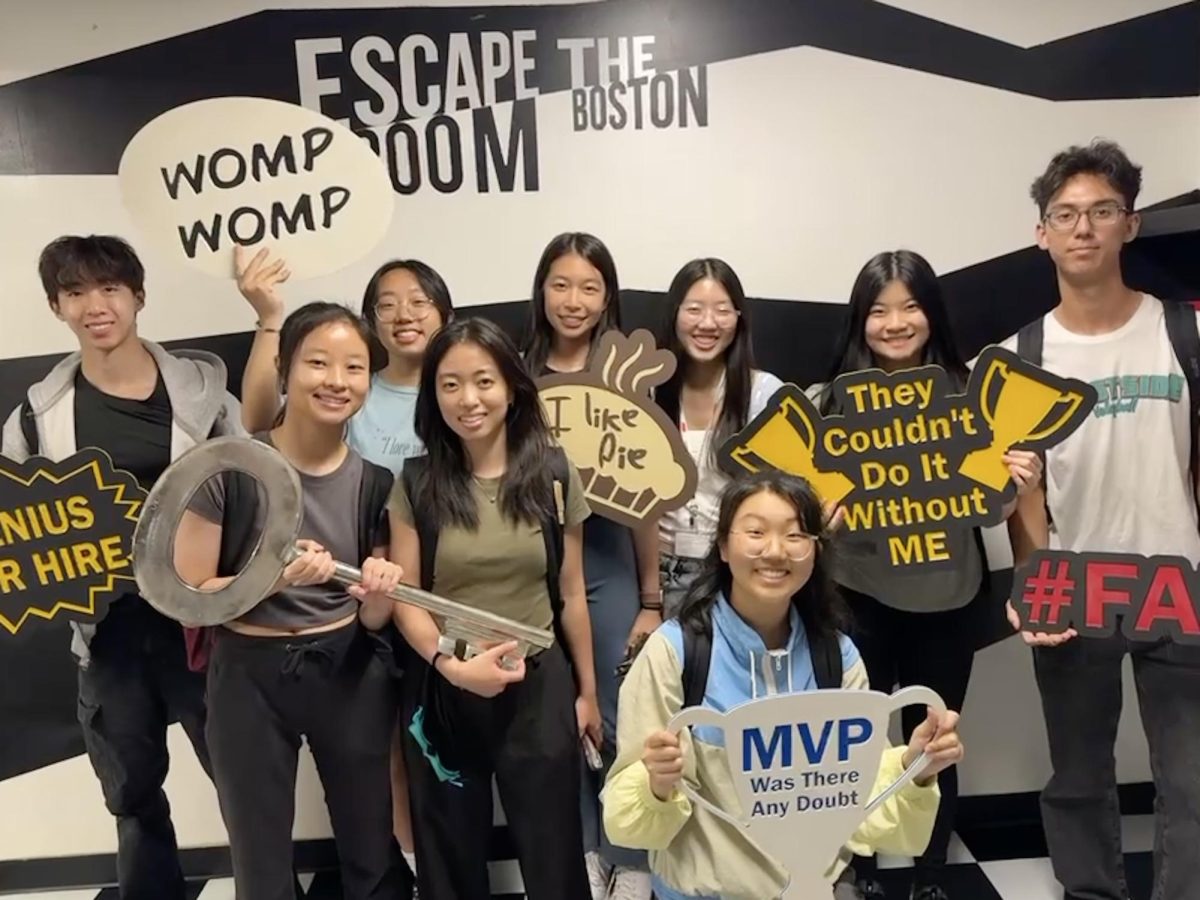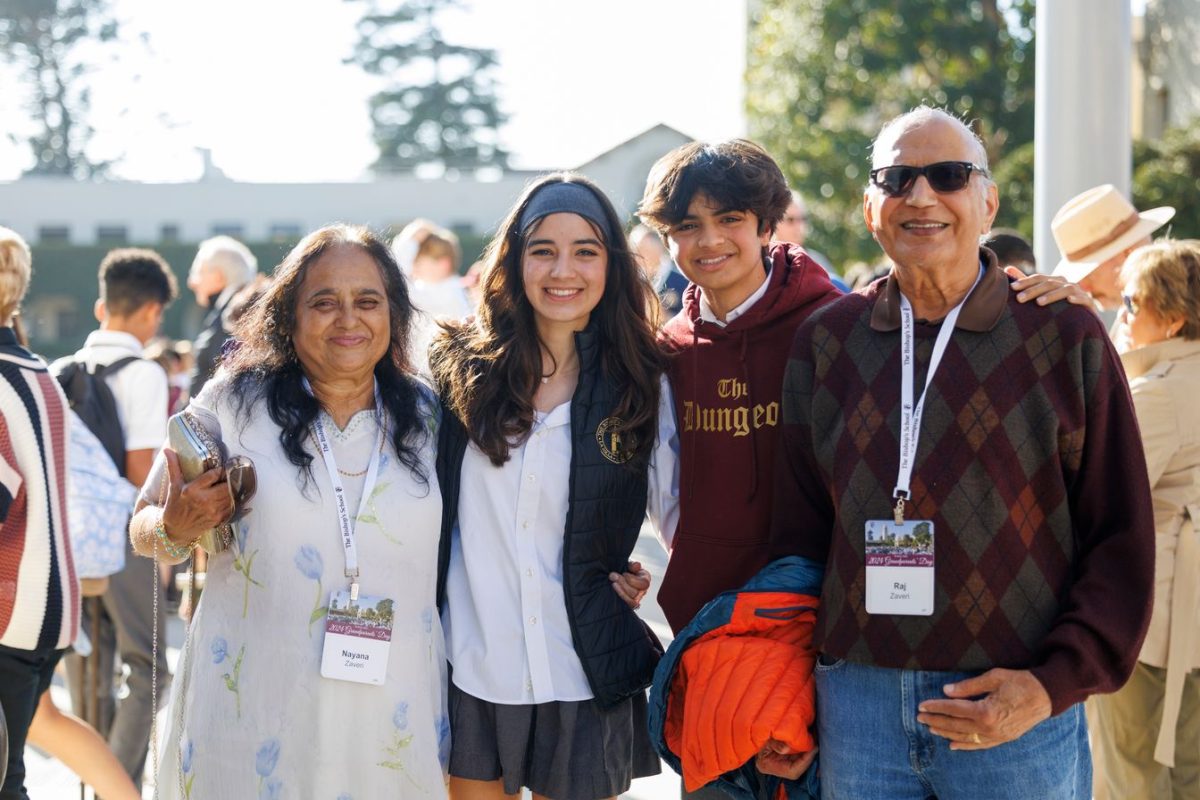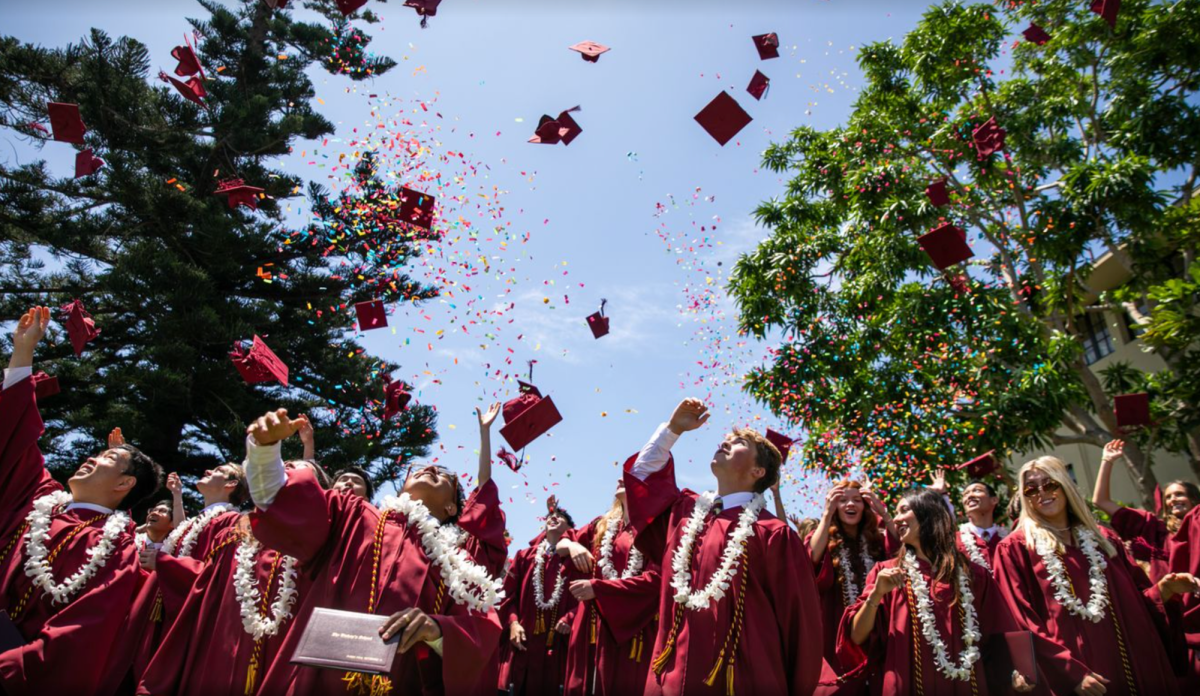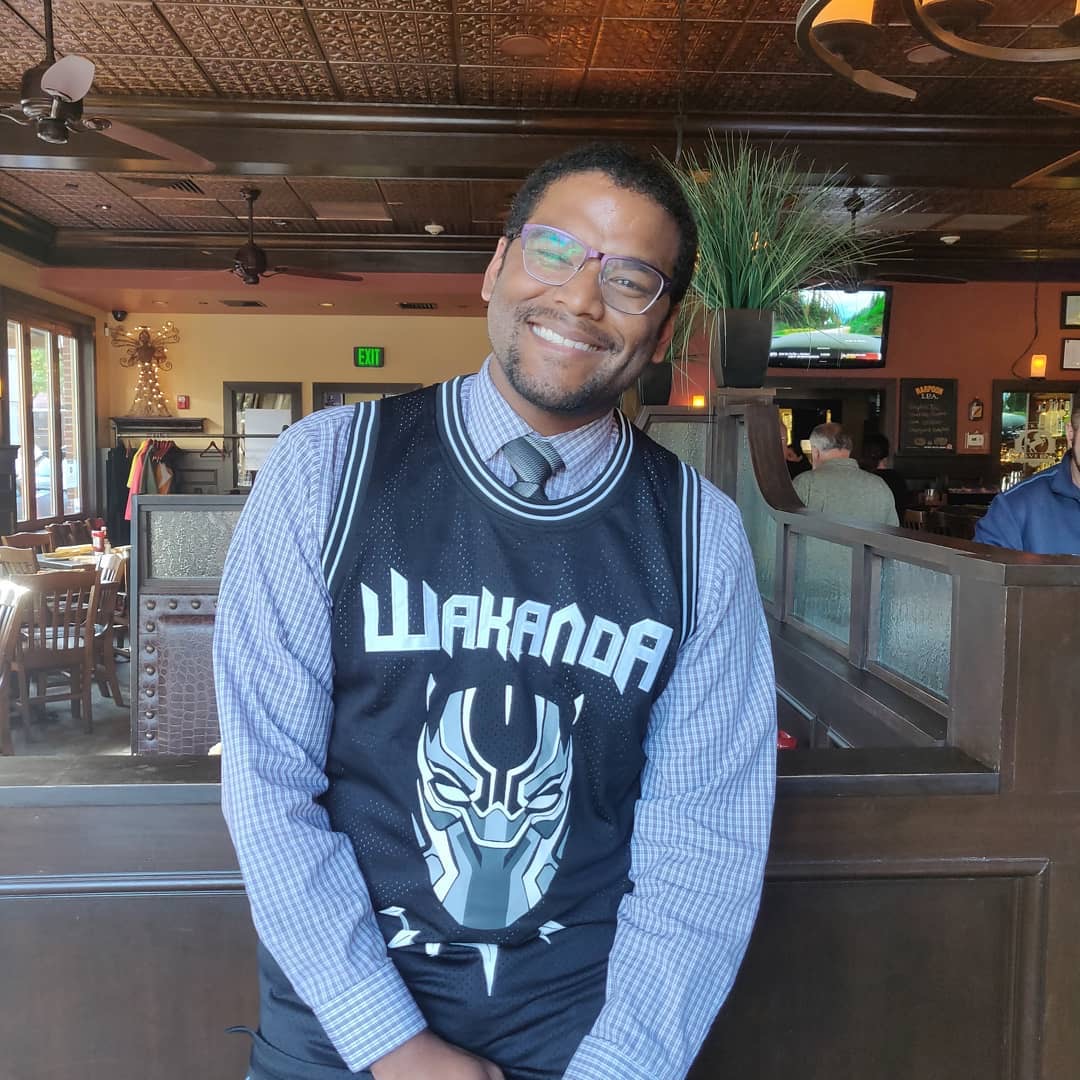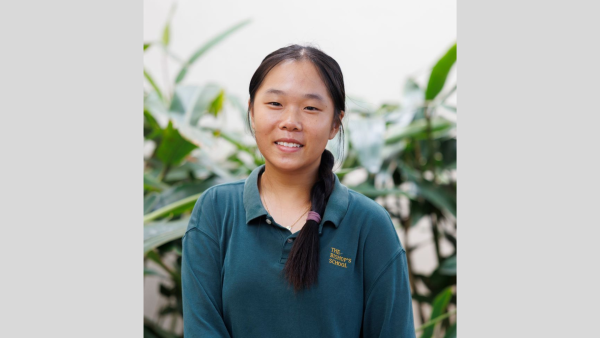Amid the stress of AP exams and cumulatives, Bishop’s students took a break from studying to gather on the quad and listen to poets Kazim Ali and Blas Falconer. Organized by English Teacher Mr. Adam Davis, the annual Robert Mulgrew Poetry Series—named after the late English Department Chair—welcomed its 22nd and 23rd poets to visit Bishop’s.
The event began with an opening speech from Mr. Davis, and he offered his own meditation on poetry, saying that, “…poems are spells that can break or be broken, incantatory in the ways they explore personal geology and ideological seismology.”
With that, the poetry readings began. Ali and Falconer each took turns reading their poems; one poet would select a poem to read, and the other looked to build upon the theme by reading a similar poem. “It felt like a dance between the two poets,” said Rebecca Liu (‘26), a student who attended the reading. Each poem was selected spontaneously, and yet, the readings flowed back and forth easily.
“Besides being hometown heros—Kazim teaches at UCSD and Blas teaches at SDSU—these poets have dynamically different writing styles but are good friends too, which I thought would make for an excellent showcase in displaying opposing approaches to verse,” Mr. Davis explained.
These different “approaches” were clear when they recited poems one after another. Ali liked to play with voice and rhythm; in his poem, “Speech,” he spoke loudly and evenly, and in “Letter to Zephyr the West Wind,” Ali donned a sassier tone. Falconer, on the other hand, read with a slower cadence, placing emphasis on certain lines and letting the words sink into the listeners.
Much of their poetry drew from their own personal experiences, some even as mundane as a swim coach telling a child to count to two before resurfacing for air—Falconer was able to turn this memory into a poem titled “My Son Wants to Know Who His Biological Father Is.” In “Providence,” Falconer details a time when he visited the planetarium with his two sons.
Ryan Shi (‘26), another student who listened to the poems, said, “There’s something to be said about the musicality of their poems. I’d describe their use of language and sound as lyrical…it’s especially obvious when they read in person.” Rebecca agreed, and said, “There were several lines in there that were so beautifully and tragically written, like ‘the cloven cleave’ and ‘you murdered me into music.’”
Afterwards, when responding to a question on why he chose to pursue poetry, Falconer said that he had initially planned to go to law school, but that was delayed again and again, until he knew that it was too late. “Poetry is the longest relationship I’ve had,” he said. “I had a lot of people around me trying to tell me who I was. Poetry made me stop and hear their voices and hear my own quiet voices responding, saying ‘no, it’s more complicated than that.’”
Ali, too, emphasized the quiet yet powerful impact of poetry, even if there was only a small audience, particularly in a society that valued the arts as supplementary. For him, poetry allowed others to see the “full range of people” through writing.
Reflecting on the event, Mr. Davis hoped that, “audience members took away their affirming belief in the power of art to change society and how only by staying true to yourself can you find purpose.” The reading served as a grounding reminder: that poetry still has a place even in the busiest of seasons.


